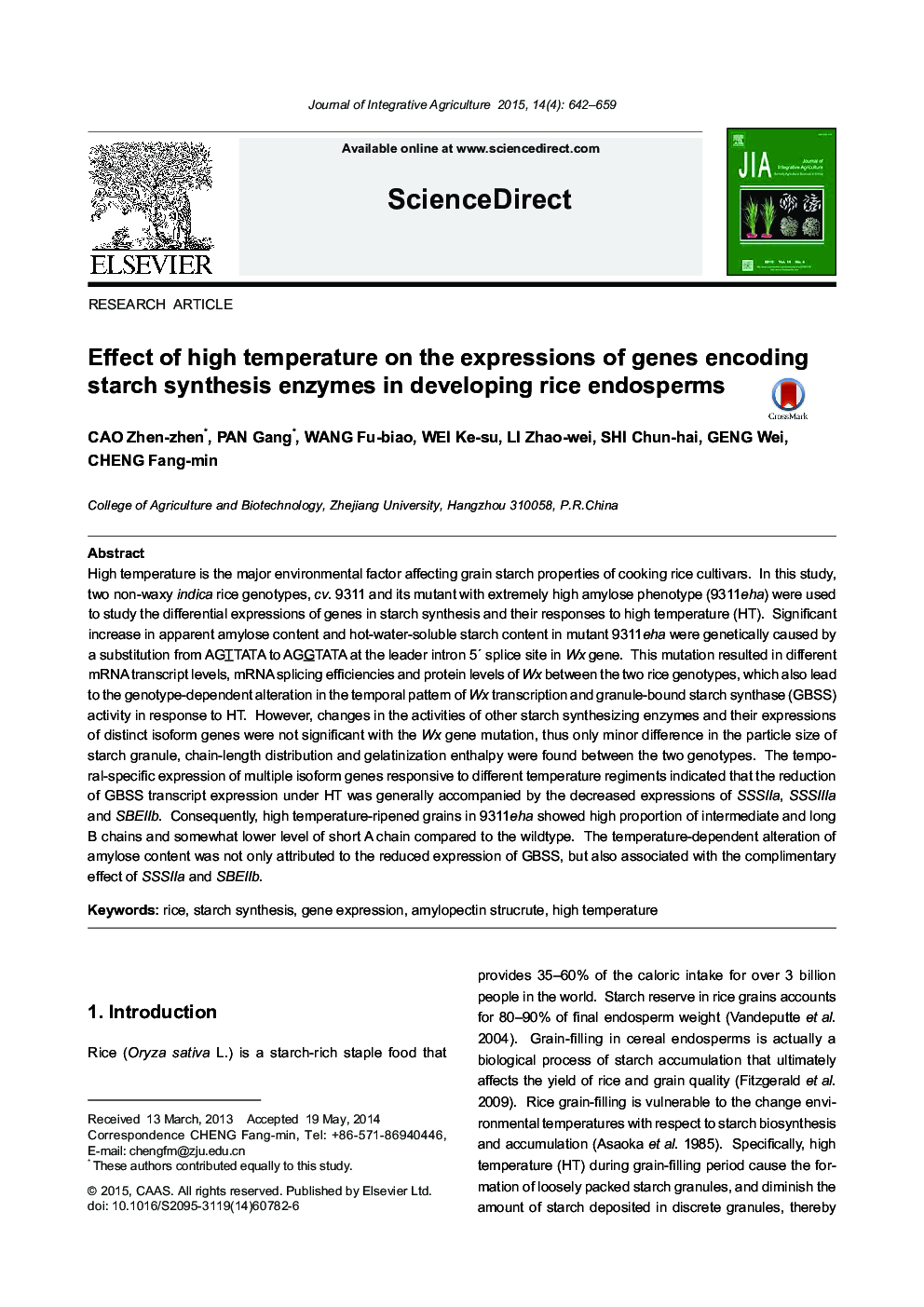| کد مقاله | کد نشریه | سال انتشار | مقاله انگلیسی | نسخه تمام متن |
|---|---|---|---|---|
| 4494355 | 1318710 | 2015 | 18 صفحه PDF | دانلود رایگان |
High temperature is the major environmental factor affecting grain starch properties of cooking rice cultivars. In this study, two non-waxy indica rice genotypes, cv. 9311 and its mutant with extremely high amylose phenotype (9311eha) were used to study the differential expressions of genes in starch synthesis and their responses to high temperature (HT). Significant increase in apparent amylose content and hot-water-soluble starch content in mutant 9311eha were genetically caused by a substitution from AGTTATA to AGGTATA at the leader intron 5′ splice site in Wx gene. This mutation resulted in different mRNA transcript levels, mRNA splicing efficiencies and protein levels of Wx between the two rice genotypes, which also lead to the genotype-dependent alteration in the temporal pattern of Wx transcription and granule-bound starch synthase (GBSS) activity in response to HT. However, changes in the activities of other starch synthesizing enzymes and their expressions of distinct isoform genes were not significant with the Wx gene mutation, thus only minor difference in the particle size of starch granule, chain-length distribution and gelatinization enthalpy were found between the two genotypes. The temporal-specific expression of multiple isoform genes responsive to different temperature regiments indicated that the reduction of GBSS transcript expression under HT was generally accompanied by the decreased expressions of SSSIIa, SSSIIIa and SBEIIb. Consequently, high temperature-ripened grains in 9311eha showed high proportion of intermediate and long B chains and somewhat lower level of short A chain compared to the wildtype. The temperature-dependent alteration of amylose content was not only attributed to the reduced expression of GBSS, but also associated with the complimentary effect of SSSIIa and SBEIIb.
Journal: Journal of Integrative Agriculture - Volume 14, Issue 4, April 2015, Pages 642-659
